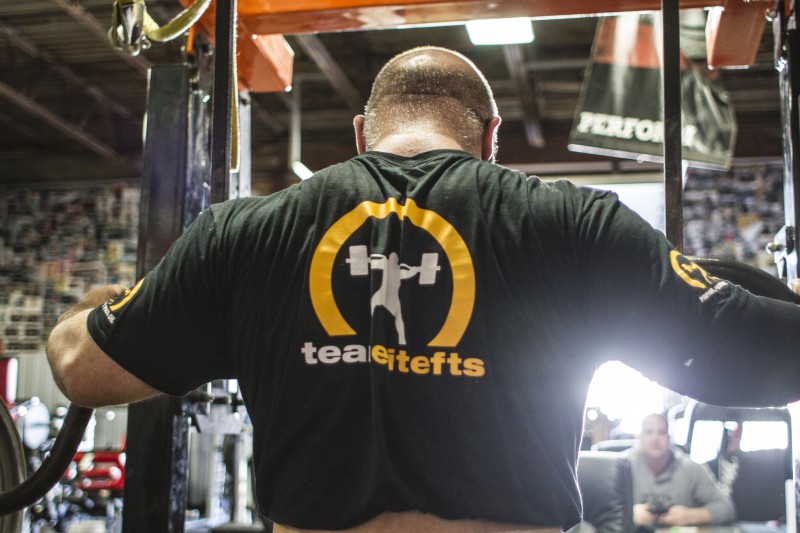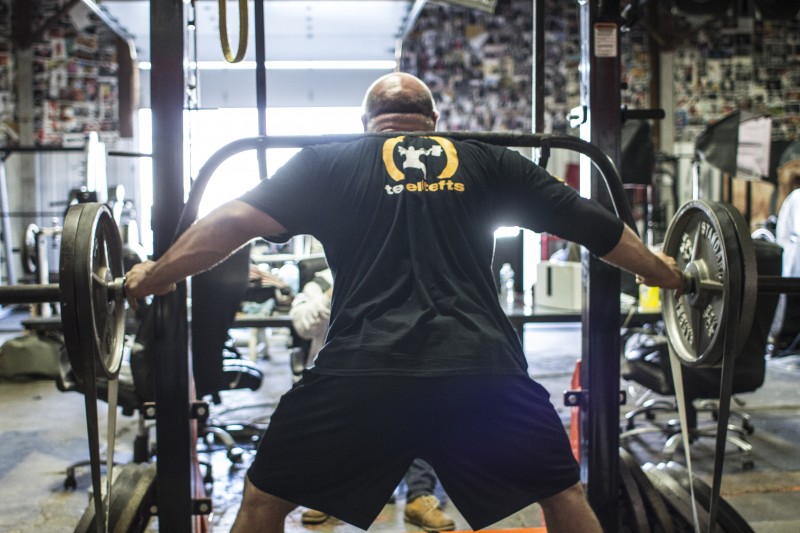
"Live, learn, and pass on" — not a bad mantra to live your life by. Dave Tate started this saying years ago, and I've tried to remember this not just in my “day job” but also in my writing and speaking. I’ve been lucky to be able to learn from some of the best strength coaches and educators in the country over the course of my career. I've also had scores of bosses and supervisors and too many jobs to mention.
RECENT: Grading Professionalism in Collegiate Strength and Conditioning
When I was in high school, I worked at a grocery store, two restaurants, and a lawn service company. Then in college, I graduated to pizza shops, Subway, and a few others I can't remember. Since college, I've worked at seven different universities and a few Globo gyms. I've run clinics, I've trained privately, and I've even worked construction. From all this, I've learned from some great leaders and some less than great leaders. I'll break down some of the do's and don’ts of leadership from my experience. As with my previous articles, I'm not claiming that these are the right ways to do things. But they've worked for those managing me and for me when I manage others.
1. “You only have as much control as those around you are willing to give you.”
A mentor of mine gave me this advice years ago, and for me, it defines coaching. If an athlete isn't willing to commit and open himself up to the coach and the team, the athlete and the team will always be limited. I was just discussing this issue with one of my coaches. If there isn't trust from coach to coach, athlete to coach, and support staff to coach, there isn't any chance for growth. This doesn't mean that a team can't win, but it does mean that a team won't reach its full potential.
Do your athletes trust and respect you? Do you return that trust and respect to not only the athletes but to the other people on staff? Do you openly discuss this with the other staff members as well? I ask every person to trust me and then I say that I hope to earn their respect through my actions. This is something that I recently began doing. Had I been doing this years ago, it would've saved me time, heartache, and a few grey hairs.

2. “Be a presence.”
These three words mean so many things and have so much of an impact on me as a coach. First, take up space. We aren't all built like the Monte Sparkman or Zach Reed, but we can still be a presence in any room we walk into. Don’t start out by grabbing two bags of luggage and finding your inner ILS though. If you don't know what ILS is, go do 5000 pull-ups and figure it out.
Walk in the room with some level of authority. Don't coach with your hands in your pockets, your arms crossed, or sitting in a chair. Don't forget to be present. I've learned a lot about this since I began meditating and teaching meditation to my teams. Be present in the moment and don't worry about tomorrow or the next exercise. Appreciate the moment that you're in and forget the future and the past. I've had many great mentors teach me about this one, but the one I'll never forget is when Ethan Reeves told me that he loves toothaches because he knows he's still alive. I don’t know if I agree with Ethan on that, but I get where he's going with this life lesson.
3. “Take them to lunch.”
I believe I received this advice from Kaz (he's like Madonna; he only gets one name). I've used it with everyone from administrators to coaches. It's hard to be mad at someone while breaking bread with them. I've written and spoken about this many times before, so I won't go into much detail. Just remember that when you're at an impasse with someone, try to rebuild the relationship. Start with going to lunch. I find that in the right situation, taking someone out for a beer is a good alternative.
4. “Know YA.”
A previous article of mine discussed knowing your audience (YA). It's important to know with whom you're communicating. A team on campus that had never previously trained before asked me if I would train them this year. The first thing I did was take the coaches out for coffee. I found out that the assistant was an athlete under a former friend of mine in college. This made an immediate impact for both of us. I asked about the who, what, and where of the team, and I asked where the coaching staff came from.
Bryan Mann recently wrote about speaking the same language as the sports coach. If you aren't an expert in his or her sport, you'll make some blunders. Don't allow your mistakes to define the relationship. Figure out what verbiage the coach and team use to work with the athletes. Also, when you speak, know your secondary audience as well as your primary audience. My team speeches are a little different depending on whether we're inside or outside the walls of the weight room. The odds of a professor, the president, or others becoming part of my audience go up exponentially when we're outside. Choose your words more carefully when out in the open air.
5. “Learn other's culture.”
Culture is such a buzzword that when I hear it, I want to work my core while running through speed ladders and drinking chocolate milk. Often, we as strength coaches are trying to build or reinvent culture. My question is, what are you trying to replace? Is the current culture good, and if not, what needs to be changed? Throughout my career, I've worked with over 100 coaches and I can steal something from all of their teams “cultures.” I'll argue that we need to stop trying to change culture and start trying to understand culture. As strength coaches, we are the ultimate assistants. I know many of us would hate to admit this, but we aren't, and never will be, the head coach. We must ultimately fit into the head coach’s culture. To delve deeper into this issue, I highly recommend that everyone listen to Ron McKeefery’s podcast with Fergus Connolly. I listened to this podcast this week and was blown away by how a “sports scientist” was as broad as he was with his view of strength and conditioning.
6. “Pick your battles.”
Too often, I see young coaches fighting battles that even if they won, they would still lose the war. If you can give up some of your programming and there isn't any danger to the athlete, why wouldn't you make a slight change? I've often heard strength coaches say, “I don’t tell that coach what to do in practice, so they can’t tell me what to do in the weight room.” This may be the dumbest statement in our industry. If you as a strength coach go to practice to “tell” your sport coach what to do, you should probably be fired and you aren’t helping your team get any better.
7. “Stay in your lane…and keep your eyes on your mirrors….and know when to change lanes.”
This is an adage that is battled over endlessly. Staying in your lane is a good starting point, but too often we then become dogmatic in what we're doing. Instead of just staying in our lanes, let's know what the other lanes are doing, and when it's time to move into another lane, let's use our turn signals, tell everyone around us that we're coming over, and change lanes. We aren't athletic trainers, but there are some issues that will run between us and them. So go ahead and tell them that you need to change lanes and then share that lane.
Hopefully, these few lessons on leadership are useful to you not just in your coaching life but in your life as a whole. As with any list, this one is incomplete. I would love to have your thoughts as well. Feel free to comment and tell me what you would add or why I may be off-base.












Good article bro